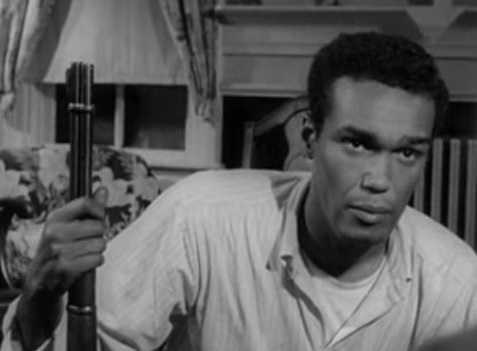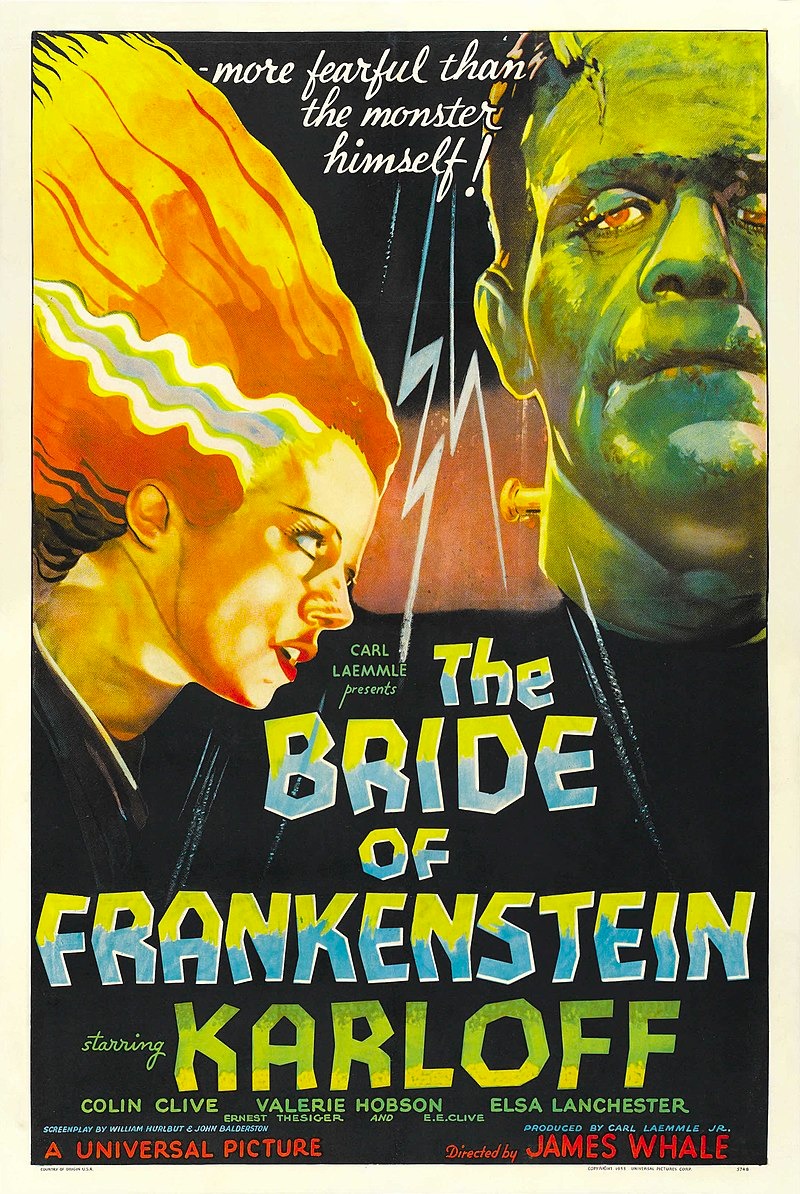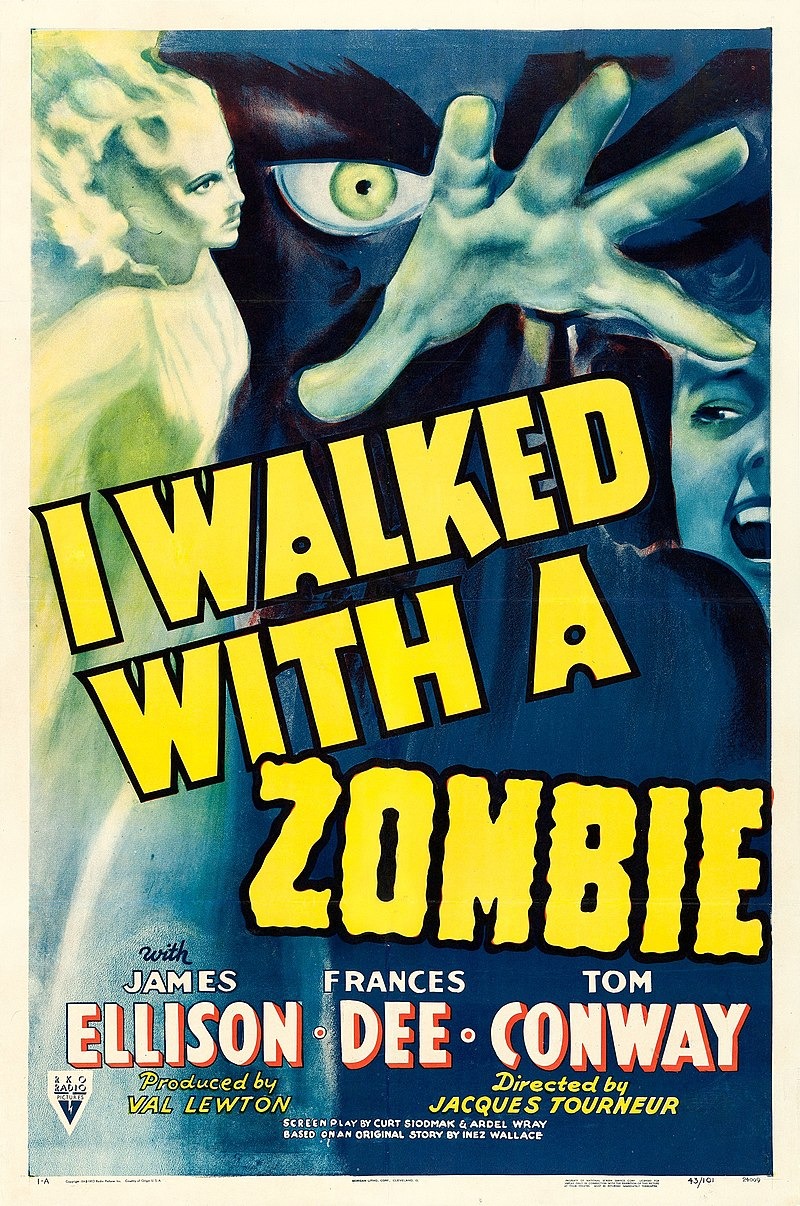
Queer Horror, Marxism and Hollywood
Brett Gregory interviews Dr. Darren Elliott-Smith, Senior Lecturer in Film & Gender Studies at the University of Stirling (UK), for Arts Express
Brett Gregory: Hi, this is the UK desk for Arts Express, and my name's Brett Gregory. Over recent weeks, we've been exploring cinema, not only as a playground for entertainment, escapism, and egos but also as an economic, political, and ideological battleground for social class, gender, ethnicity, technology, and, as we're going to discover in this evening's episode, sexuality.
Darren Elliott-Smith: Hi, my name is Darren Elliott-Smith. I'm a senior lecturer in film and gender, and I teach at the University of Stirling in Scotland in the UK. My research specialisms are in the representation of LGBTQ people in the horror genre, and I'm arguing that it's more recently that this has moved out from the shadowy realms of implicit and symbolic representation of yesteryear.
BG: So how are we to understand queer theory as a critical approach to cinema and its relationship to, say, Marxism?
DES: I suppose it depends on your understanding of queer as a theory and how the term and the ideology have altered in recent years. For me, it's often kind of obvious that there are at least two strands to queer theory. One being around identity politics and attempting to offer what Harry Benchoff describes as an oxymoronic community of difference. So this is a kind of paradox, I suppose, in itself that captures the problematic existence within queer culture and queer theory. But queer, as a word and as an ideology, in my understanding, also still disturbs some people, depending on your social persuasion, or your generation or background, in lots of different ways. And in terms of where this fits with Marxism, queer activism all drew upon socialist rhetoric that called for change, a change whereby the queer collective were being marginalised, crushed, and effectively killed by capitalist, imperialist, middle-class, white CIS hetero patriarchy. And Pride, though far removed from the activist origins of Pride marches in the 1970s, 1980s, still retains some of that need for change to look after the collective and therefore the individual as they exist within the mass, free from the oppression of that ruling elite.
BG: And how does this inform a queer understanding of the horror genre in particular?
DES: Interestingly, many of the works of early horror film theorists in the 1970s, particularly the definitive work of queer film scholar Robin Wood, utilised both a lesbian and gay approach with a socialist and Marxist approach as well. So he argued that, using a little bit of psychoanalysis merged with Marxism, that those ideals and energies that don't fit the bourgeois capitalist, imperialist, and white patriarchal culture of production and reproduction are cast out as other across this imaginary border, which then sets up the binary of us versus them. The problem is that actually within horror and within a lot of Gothic narratives, the ‘them’ or ‘they’ sometimes come back. The fact that they always come back, repression and oppression eventually is shown to fail in the horror narrative, causing this monster, creature, killer, or infection, whatever it is, to come back and threaten that pure individual that's meant to represent the US.
BG: Can you give us a specific film example where the ‘us’ and ‘them’ binary becomes blurred?
DES: in kind of focusing on this theory. He collapsed the ‘us’ versus ‘them’ binary, and we see this most critically skewered in films like George Romero's ‘Night of the Living Dead,’ whereby the undead, the zombie, the returned, kind of reanimated corpse who once was human, once was us, become a ‘them’ figure, and then they return to assimilate everybody else into this undead horde, where children eat parents, and the sole survivor, which in this case is Ben, black male, is gunned down by white vigilantes at the end of the film, who stake him for one of them, even though he's not zombified; he's actually still human and very much alive. And Romero's point is that the gun-toting white male doesn't see any difference; actually, all exist in an othered state.

BG: So what is the scope of horror films and television shows which is under consideration here?
DES: Queer horror, although I'd argue that all horror is queer in that it seems to represent the odd, the strange, the non-normative, and as a genre, it seeks to distress, to upset and to challenge, and to scare. It's for me a set of films and TV shows that are made, normally by LGBTQ creatives, that foreground queerness as an element of representation in some way, but this subgenre also includes historical considerations as influences upon these newer out contemporary horror films and shows. So, in order to do that, we have to look at what a lot of academics and myself call closeted texts like, Interview with a Vampire, The Hunger, Psycho, Bride of Frankenstein, all these films that kind of clearly have LGBTQ themes running through them but never really explicitly kind of outwardly state that they are. So they involve some kind of symbolic interpretation or reading.
BG: From a historical perspective. The Hays Code, which was introduced in the 1930s, clearly had a resounding effect on cinema's representations, narratives, and themes. Could you tell us a little bit more about this?
DES: So, the Hays Code was set up after a series of scandals rocked Hollywood, and people were worried about the deplored world of filmmaking as one that might infect supposedly decent heteronormative family life. One particular case that's often cited is the star Fatty Arbuckle being accused of raping a young starlet in the early 1920s. So, Will Hays set up a production code that would monitor the content of all film productions and those that were released in US cinemas, preventing certain elements and themes and narratives that they deemed would seek to poison US ideology. It's Vito Russo's documentary and book ‘The Celluloid Closet’ outlines this really well in terms of the impact on LGBTQ+ folks. The rule that existed within the Hays Code strictly prohibited any depiction of what was called "sex perversion," impacting any explicit representation of any non-normative sexuality or romance. So, Some films had to get around this by using symbolism, inference, suggestion so as to ensure that their true audience were being represented in and seen in films. Some directors, queer-affiliated directors, were kind of doing this deliberately, coding their films in a way.

BG: For example?
DES: The Universal franchise of horror films from the '30s and the '40s were actually playing with the limitations of the code as well. It's been kind of recently introduced so the suggestion here becomes quite pointed at times, and there's a practice of rebellion in a small way, and this was more pushed, I suppose, by the makers of these films. So if we can kind of go to certain auteurs, film directors like Todd Browning, whose sexuality was often kind of questioned but never fully defined, he made the pre-code film ‘Freaks,’ which is problematic but also really interesting kind of queer film in its representation of non-normative body types. There's also James Whale, who is a gay British director who ramped up the suggestion in his version of ‘Frankenstein,’ that he directed and even more so in the kind of more comedic and kind of almost parodic ‘Bride of Frankenstein’ where we have this homoerotic triangle literally exploding off the screen between Frankenstein the creature and Dr Pretorius as well.
BG: And once again social class is at play in such horror films as well isn’t it?
DES: Class definitely comes into it again, drawing on those early Marxist readings from Franco Moretti on the nature of the capitalist blood-sucking vampire configured more recently as a corporate CEO or landed gentry or an aristocrat versus the underclass or working class, the proletariat of the zombie or a mindless slave. And we see a kind of a literal version of this in the depiction of Haitian voodoo in early RKO texts like ‘I Walked with a Zombie.’ But the queerness present in the upper classes, something I suppose that's reflected on as a consideration of effete queer men, idiosyncratic in their taste, often overindulged with an emphasis on the pursuit of overwhelmed senses, and that kind of stereotypical depiction of upper-class queerness is existent in early Gothic texts like ‘Jekyll and Hyde' and ‘Dorian Gray,’ where the upper classes are seen to wallow in debauchery that's propped up by generations of wealth, them having the time, the money, the power to indulge in seemingly perverse desires.

BG: And queer horror is still disrupting and destabilising popular conservative sensibility today as well, isn't it?
DES: Well, the recent remake of Hellraiser wasn't received so well by so-called purist horror fans. Um, they took against this more explicit queer content and they rejected in particular the idea of trans actor Jamie Clayton as the new Pinhead. I mean, not realizing that this film was written by a gay male author, directed by the same man, Clive Barker, and inspired by his experiences of BDSM queer practices that he saw in Berlin nightclubs. And it's quite clear that it's queer from the get-go.
BG: And your academic work presents is exploring the relationship between queer horror, trauma, and mental health, is that correct?
DES: So my recent work looks at the impact of neoconservative, neoliberal ideologies upon LGBTQ individuals' mental health and how horror and Gothic are often the go-to genre for the representation of this. So recently, we've seen a few films that foreground this, utilising horror tropes. ‘Hypochondriac’ from 2022 focuses on this young man who fears that he's inherited his mother's mental illness but sees himself split into two versions of himself: one is a wolf man, the other is this kind of non-normative, seemingly kind of normal queer individual. Other films like ‘Thelma’ from 2018, which is a Swedish supernatural film about a girl with Carrie-like powers who comes to terms with her own lesbianism that has been repressed by her staunch religious parents. And even the recent series of ‘American Horror Story: NYC’ tends to come to terms with personal and cultural trauma that's affected the queer community and also across the world, but particularly in New York. Via various, albeit from my perspective, they're quite clunky allegories and explicit narratives around the AIDS crisis in the 1980s.
BG: And we must never forget that with the current rise in right-wing attitudes in both the US and the UK, there are real lives at stake here.
DES: So it seems that in the past few years, things have become even more obvious that being different, being LGBTQ in today's world can be scary. Our rights are being taken away one by one, these hard-won equalities that have been rolled back, and our existence as legally equal is increasingly becoming very precarious. So it's a really interesting time, I think, for theorists and for filmmakers to think about the ways in which we can start to kind of think about how cultural theory that once oppressed and stigmatised queer people is now being re-interpreted, re-expressed, and re-presented to allow queer filmmakers and theorists to take up that mode of address that can offer critiques of the establishment and of also our own subcultures and of those that still oppress us.
BG: Fantastic Darren, it's been an absolute pleasure having you on the show. Your cinematic observations have been both illuminating and important.
